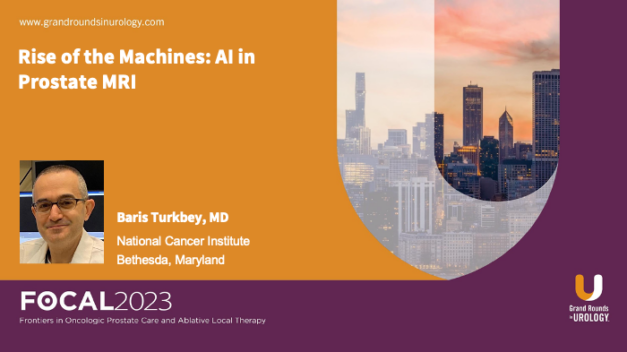Rise of the Machines: AI in Prostate MRI
Baris Turkbey, MD, explores the capabilities and training gaps of Artificial Intelligence in MRI prostate cancer detection. He begins by establishing the ubiquity of MRI technology in prostate cancer treatment across the globe and highlighting the shortcomings of previous and current guidelines on the use of MRI for disease detection.
Dr. Turkbey highlights the shortcomings of previous and current guidelines on the use of MRI for disease detection, noting that current data is too dependent on the experience of the practitioner. He then introduces the idea of using Artificial Intelligence (AI) to standardize prostate cancer detection.
Dr. Turkbey then presents examples of AI successfully detecting prostate cancer lesions on MRI imaging. However, he cautions that more rigorous training and supervision is still needed for AI imaging, as AI has a high false-positive rate.
Dr. Turkbey concludes by examining the impact of image quality on AI performance, indicating that more training is required before these models can be deployed as a diagnostic aid. He presents data that demonstrates that low-quality images significantly impact the cancer detection rate of AI models.
Read More




